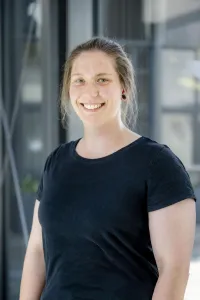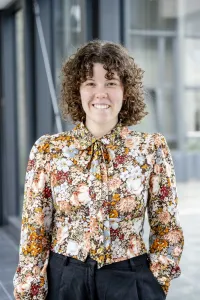Wieso haben Sie sich damals für Ihr Studienfach entschieden?
After completing my bachelor's degree in biology, I wanted to continue my studies in ecology because I am interested in how our biological environment works. I found the concept of the Biodiversity Master's programme, which allows students to attend courses at two universities, exciting and convincing. Although I was a little concerned about the long compulsory internship at first, it proved to be very useful and, in retrospect, gave me a lot of practical experience and guidance. Overall, I am very happy that I chose the Biodiversity Master's programme.
An welchen Stellen haben sich die Erwartungen an Ihr Studienfach erfüllt, an welchen nicht?
My expectations were met particularly in the sense that, after the first semester, I had a lot of freedom to set my own academic priorities. At the same time, however, it was also challenging to decide between the multitude of exciting topics. What I had not expected was that the module selection would vary greatly from semester to semester – this can make it difficult to plan your studies and requires a certain amount of flexibility.
Was macht Ihnen in Ihrem Fach am meisten Spaß?
What I enjoy most is combining theoretical knowledge with practical application. You not only learn how the biological environment works, but also how to positively influence it in the best possible way. The excursions in particular were always a highlight. I also enjoyed the discussions in the seminars, which opened up new perspectives for me. The small course groups facilitate intensive and personal exchange. That's really beneficial.
Was war bisher die größte Herausforderung?
Time management in the first semester. Initially, it seemed overwhelming, but after two to three weeks, I found a good rhythm.
Was wollen Sie einmal damit werden?
I recently started working at an environmental planning office, which I am very happy about. However, I can also imagine working at a biological station in the future, as I find the combination of nature conservation practice and research very appealing. If the opportunity arises, I would also consider pursuing a doctorate. In general, I am open to whatever comes my way. The subject opens up so many exciting career fields that I am thrilled to see where my path will take me.
Welche Tipps geben Sie den Leuten, die auch überlegen, Ihr Fach zu studieren?
Anyone with a general interest in biodiversity issues is in good hands here. Don't be afraid to ask questions and discuss things. You really learn a lot that way. Good time management and a well-organised calendar also help.

